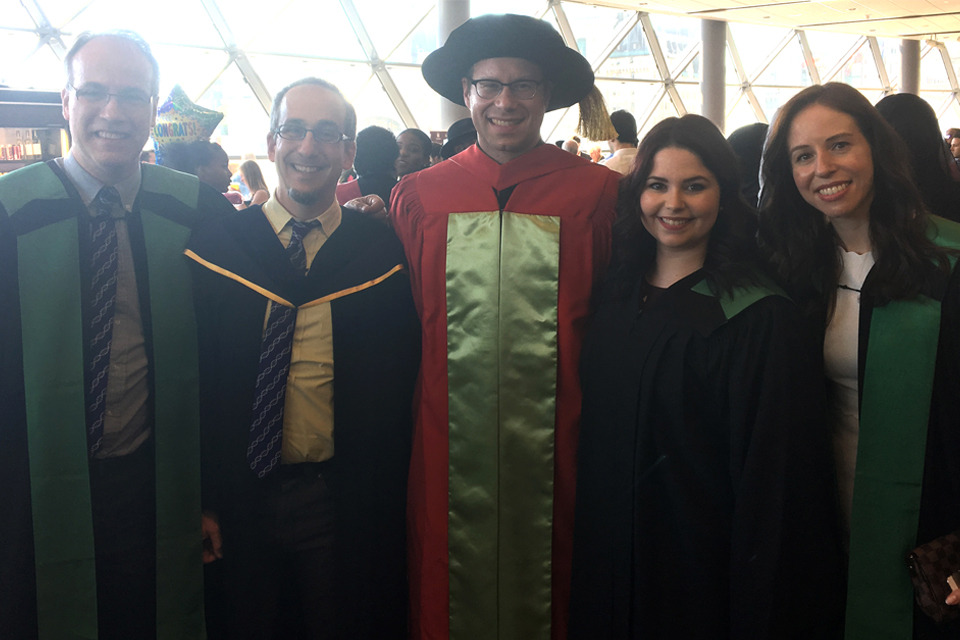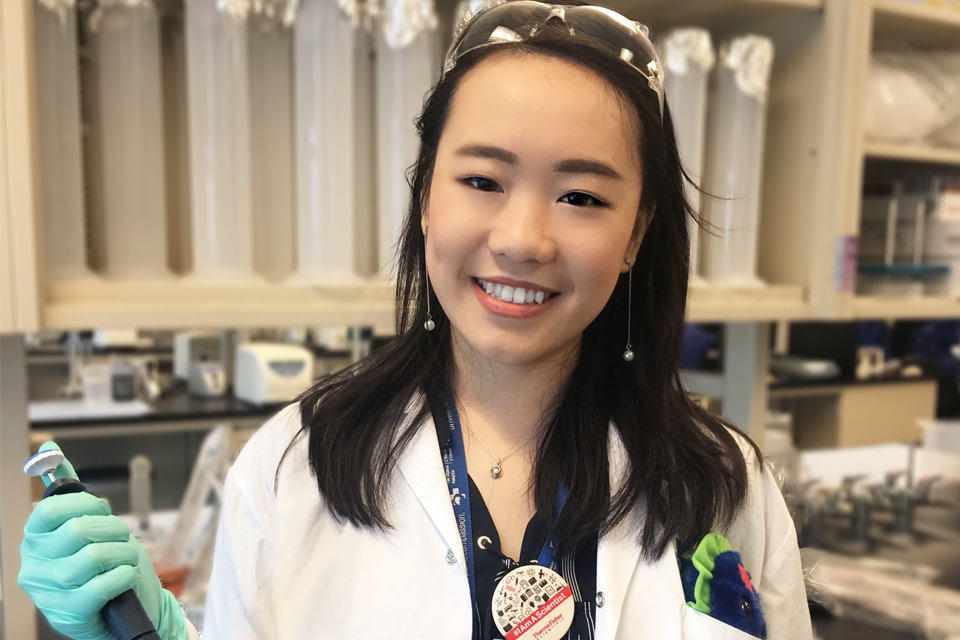uOttawa Faculty of Medicine’s Honours Bachelor of Science in Translational and Molecular Medicine (TMM) is one of the most unique programs in the country – offering a collaborative learning environment between the researchers at the Faculty and its affiliated health research institutes.
It’s designed for students who have already completed two years of study in a Bachelor’s degree within a relevant discipline such as biochemistry, biomedical sciences, chemistry, biopharmaceutical sciences and biology.
Launched in 2016, its first cohort of students graduated this past spring. Forty percent of these students have enrolled in a graduate program, and 50% have been accepted into an MD program.
“These numbers reflect the high standards we have set for the learning environment,” says Dr. Jean-François Couture, Director of TMM. “Our classes are small and student-centric with only 40 students admitted per year. It was such a pleasure watching our students flourish in this environment.”
Since its launch two years ago, this unique program has proven itself revolutionary in integrating theoretical and practical courses, giving students one of the most advanced and innovative learning experiences in Canada.
To mark this spring’s landmark graduating class and to welcome our newest TMM students, we asked two graduates to reflect on their experience in the program:
Sabrina Robichaud (Spring 2018 graduate of TMM)
Appeal of TMM program
The degree I was pursuing before was heavily based on theory and not so much on the application of the concepts. When I first heard of TMM, I was immediately interested as I am more of a hands-on learner. TMM stands out because it relies on translation of the basic theory to the disease which makes the classes so much more interesting. It helps put the basic science into context and gives it more a purpose to study said mechanism/concept.
Best memories from the program
TMM allowed me to meet so many great people; students and professors alike. We quickly became the little TMM family where everybody was ready to help each other. Nobody was left by themselves, there was always someone there to help you whenever you needed help. I was also able to connect more with my professors than before. I gained great friends and mentors through my time in TMM.
Picking only one great memory from my time in TMM is hard, we had so many. From our weekly trips to Timmies, to our great Christmas parties, first poster session, and graduation—TMM was really a great two years.
Advice for new TMM students
Pick two rotation labs that are very different in topics. This is the only time you’ll ever have to explore different topics so you should take advantage of it. Also, take advantage of down time to get ahead on homework and lab work. You’ll thank yourself later.Finally, hard work pays off, but don’t forget to take some time to enjoy and take care of yourself.
Sabrina is currently enrolled in a Master’s degree in Biochemistry at uOttawa where she is studying lipid droplet biology at the University of Ottawa Heart Institute with Dr. Mireille Ouimet with the intent on transferring to the PhD program.
Jessie Duong (Spring 2018 graduate of TMM)
Appeal of TMM program
Prior to enrolling in TMM, I was a second year uOttawa student pursuing a BSc in the Biomedical Sciences program. During that time, my personal interests and passions resided in the field of human health and disease. As a result, when I heard about a new undergraduate program offered by the Faculty of Medicine with a more holistic approach to education, I was intrigued. The TMM program promised courses integrating the theoretical concepts required to understand the science behind relevant medical issues, along with the practical hands-on lab experience and techniques required to tackle these problems in a laboratory setting. After learning about other unique opportunities offered to the TMM students, including the two rotations projects in 3rd year, the Work in Biomedical Research (WIBR) funding, and courses on advanced laboratory techniques, my decision to transfer programs was easy.
Best memories from the program
Enrolling in the TMM program was one of the best decisions I could have made for myself. The small class sizes fostered an immersive learning environment, where students were encouraged to participate in class discussions and ask questions. The professors knew us by name, and we were no longer just numbers in a class of 400. Additionally, the program provided its students with the tools and resources to specialize in their fields of interest. I was personally interested in virology and viral pathogenesis, and was able to do a rotations project in the field—exploring Ebola entry and infection in Dr. Marceline Côté’s lab—as well as complete my Honours thesis in oncolytic virology in Dr. John Bell’s lab. Through the TMM program I was offered new opportunities where I gained invaluable biomedical research skills and the knowledge required to secure a position in my field of choice.
Personally, the most memorable aspect of the TMM program were the people I met. The professors and the students created a very warm, supportive environment. My peers were incredible, brilliant individuals, and I’ve made some lifelong friendships along the way.
Advice for new TMM students
If I could tell the new TMM students one thing, it would be to make the most of the two years they have in the program. Take advantage of all the opportunities, meet new people, and find your passion.
Jessie is now working on an MSc in Microbiology and Immunology at the University of Ottawa, under the supervision of Dr. John Bell. His work will explore the therapeutic aspect of oncolytic viruses.


